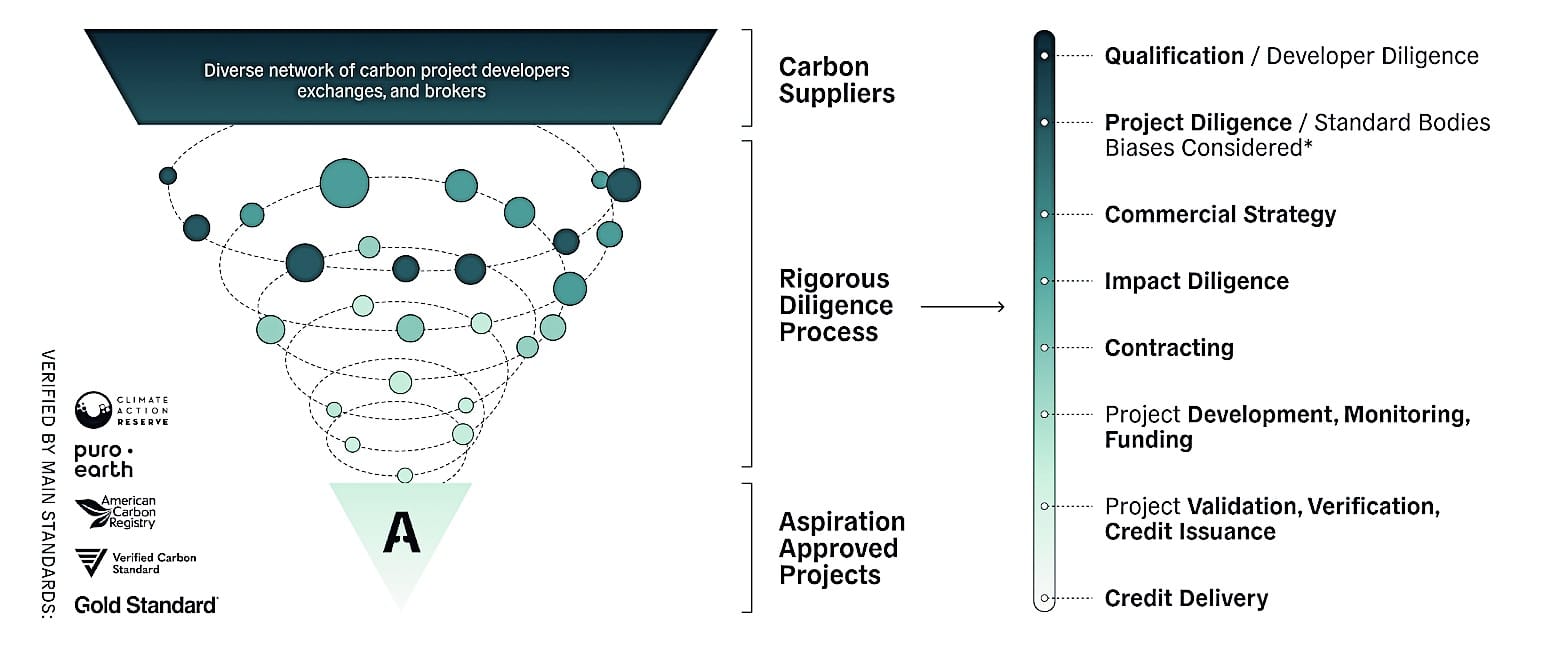Tech giant Meta inked a 6.75 million carbon credits deal with a global climate finance firm Aspiration Partners to ramp up nature-based carbon removal solutions.
Meta has been investing into carbon removal initiatives as part of its goal to reach net zero emissions in 2030. That goal covers the company’s entire value chain which aligns with the Science-Based Targets initiative (SBTi) standards.
For over a decade, Aspiration has been developing innovative carbon removal solutions to provide high-quality nature-based carbon credits for companies.
Removing 7 Million Tonnes of Carbon
Under their deal, Meta agreed to purchase in advance almost 7 million (6.75m) tonnes of CDR credits from Aspiration. The delivery of the credits will be within the 8-year period from 2027 to 2035.
The credits will be from various carbon projects managed by Aspiration involving nature-based climate solutions. These include all sorts of ecosystem restoration such as native reforestation, agroforestry, and sustainable agriculture practices.
For Meta’s head of carbon removal program, Tracy Johns, carbon credits are one of the ways for the company to achieve its ambitious net zero goals. She particularly highlighted that:
“Through our carefully selected partnerships and projects like this carbon credit purchase with Aspiration, we aim to manage and minimize our environmental impact while accelerating our path to net zero in a responsible and scalable manner.”
Meta picked Aspiration for this particular deal because of the latter’s high standard in evaluating natural carbon removal solutions. Aspiration ensures that the carbon projects it supports are high-quality with verifiable carbon removal credits.
To achieve that, the California-based sustainability firm requires projects to have environmental and social benefits. The company follows strict criteria for quality, legitimacy, and accountability by partnering with top-tier project developers and independent verifiers.
At a glance, here’s Aspiration’s approach to delivering carbon credits:

At the end of the process, the carbon removal credits created by the projects are transparent, verifiable, real, and lasting, Aspiration says.
Strategic Deals for Bigger Climate Actions
Pointing out the importance of their strategic carbon credit partnership, Olivia Albrecht, CEO at Aspiration, remarked:
“Many of these projects wouldn’t be able to get off the ground without this type of corporate commitment, which illustrates how companies can amplify their efforts and make a more significant impact on global climate goals.”
The deal with Aspiration is just one of the many climate commitments of Meta.
Apart from backing up nature-based carbon removal projects, Meta is also helping expand other removal capabilities globally. Last year, it collectively committed around $1 billion for developing technology-based carbon removals alongside Stripe, Shopify, McKinsey, and Google.
Both natural and technological carbon removal solutions are crucial in meeting the world’s net zero emissions by 2050 target. The IPCC has been sure of that. But the recent intention of the United Nations hinted that they find nature-based carbon removals more favorable.
In a note, the UN panel stated that technology-based carbon removals “do not contribute to sustainable development, and do not contribute to reducing the global mitigation costs.” This shocked the early rising carbon removal industry, but this has yet to be finally decided by the UN body.
The recent partnership between Meta and Aspiration shows the scale at which companies consider nature-based carbon credits as part of their climate and sustainability roadmaps.

